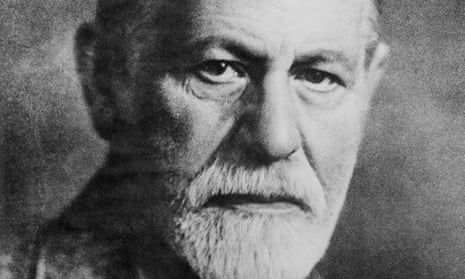“If anything is certain, it is that I myself am not a Marxist.” I love that Karl Marx said that. I love his self-knowledge. I love the poetry of The Communist Manifesto. I love that he was a seer, a prophet of what we now call globalisation. I love that he understood that there is no sphere of our lives, public or private, into which capital does not weave its way, that there can be no compromises. He is the great thinker of our times, but over the past couple of years I have changed my mind about whether he is the most important one.
If I want to read someone whose work truly explains what is happening now, and who is unsettling and properly radical, it is Sigmund Freud I turn to. It is his work that often explains things I would rather not know but recognise happening around me. I haven’t given up on Karl but Siggy strikes me as the man of the hour, the thinker who underpins how we see ourselves. You don’t read Freud for reassurance, but if you want something profound and dazzling, he’s the man.
To read Freud is to begin to see how the conception of what it is to be a modern person came about. Modernity, if it means anything, means a certain understanding of the process by which we make ourselves who we are: self-reflection. For Marx, reflection leads to inevitably antagonistic class relations. But the working class is a continual disappointment to the left for failing to recognise itself as a class, or to do as it is told. This, we are told, is the fault lately of the mainstream media, the BBC and centrist politicians, but it is in fact a global phenomenon. Freud actually understood that it is part of being human to crave authority.
He saw rationality as a veneer; underneath we are a mass of drives and contradictions. We are unknowable to ourselves, unbiddable even. Sure, Freud had his faults – a chancer trying to raise a growing family in turn-of-the-century Vienna, inventing a science that was based on conversations between men about the lives of women – but look at what he taught us. Narcissism. Repression. Nostalgia. How patriarchal laws are passed unconsciously.
Look at our current politics, now based on “taking back control”. Freud warned that nostalgia was a yearning for something that had never been, a melancholia. As a Jew, his account of childhood is like that of any outsider needing to assimilate.
Feminism is also a movement about not being allowed, or being unwilling, to assimilate into a patriarchal society. Anyone who reads Freud’s famous case study Dora will see a young woman who would not play the game, who refused to be an object of exchange between powerful men, who found a voice. She is a precursor of the #MeToo movement.
It is Freud who gives voice to things we would rather not like to think about: infantile sexuality, perversion, fetishisation, and the violence of love.
For all his blind spots – he did not see the rising antisemitism around him, instead fearing he would be brought down by the Catholic church – Freud was able to look around at bourgeois society and say: what you think is rational is dependent on drives you are not fully in control of. He says that women may indeed envy the power, if not the penises, of men.
He said that dreams matter, mistakes matter, that everything matters.
Remain supporters and some US Democrats operate with the simplistic Marxist notion of false consciousness. This states that if only people get the right facts, they will think the right things. Momentum wants to wake people up to some true vision of socialism, too often feeding another craving for authority, just of a kinder, greyer sort. Jeremy Corbyn, perhaps?
Emotions are at the base of this, not simply class positions. Freud understood this, that what we let be conscious is complex. He turns us inside out. When I have met politicians, I have often thought of them as the least self-aware people I have met. Isn’t it part of being a good leader to examine one’s own drives, ego, everyday neuroses, one’s ability to change, so as not to repeat patterns of the past, or at least to recognise them? No. Clearly not.
Freud as a self-help guru killed Freud the revolutionary. But he is a revolutionary, and let’s get him back as one. I have changed my mind about him because he changes minds. We live in an age where the repressed have returned. And it’s dark, dark stuff. If you want a new politics, then examine and change your own mind. That’s where it starts.

